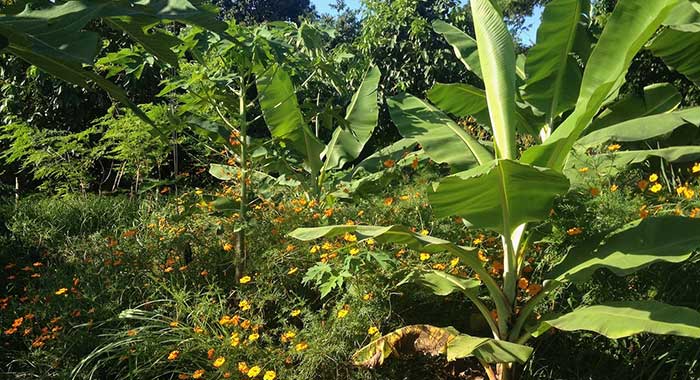An internationally recognised, certified PermaCulture Design (PDC) course will be offered in St. Vincent in September, for the first time.
Twenty young adults aged 18 to 36 will be able to participate in the course, which is being delivered through Richmond Vale Academy by Vincentian lecturer, Luke Punnett and teacher-in-training Danail Petrov.
Punnett is St. Vincent’s first certified ecological farming instructor, certified by Leon Malan Professor in Environmental Sciences at Colby Sawyer College in the United States.
RVA and UK Friends of the Mustique Charitable Trust are sponsoring the course and certification.
Permaculture is a way of ecological — organic — sustainable farming.
Changing from chemical to ecological farming has so many benefits including to human health and that of the environment, especially for rivers, oceans and the atmosphere.
The 12-day intensive, live-in course was initially scheduled to take place in May but was postponed because of the coronavirus pandemic.
It now runs from September 6, and a few positions remain open for persons to register, the RVA said.
Stina Herberg, director of RVA, said that all COVID-19 protocols outlined by the Ministry of Health and other relevant authorities will be observed during the course.
“I am very excited for the support and for this course as I see it as a bigger step in how many people in the region can get involved with ecological farming,” Herberg said.
She noted that 65% of the food consumed in St. Vincent and the Grenadines is imported. This means that the food is often produced using chemicals, wrapped in plastics and transported thousands of miles before reaching the local consumer.
“It is important to mobilise people to learn to produce and eat more ecological food and learn to understand the value of it for themselves and the environment. It is possible to grow most of our own healthy food in a sustainable and even profitable way in St. Vincent, however more training is needed,” Herberg said.
The core around which the course is taught includes three ethical considerations, namely “Care for the Earth”, “Care for all People”, and “Care for Community”.
The ethics are translated into actions by following 12 principles, which help establish all the parameters around which a permaculture design is set up and are constantly reviewed throughout the PDC.






